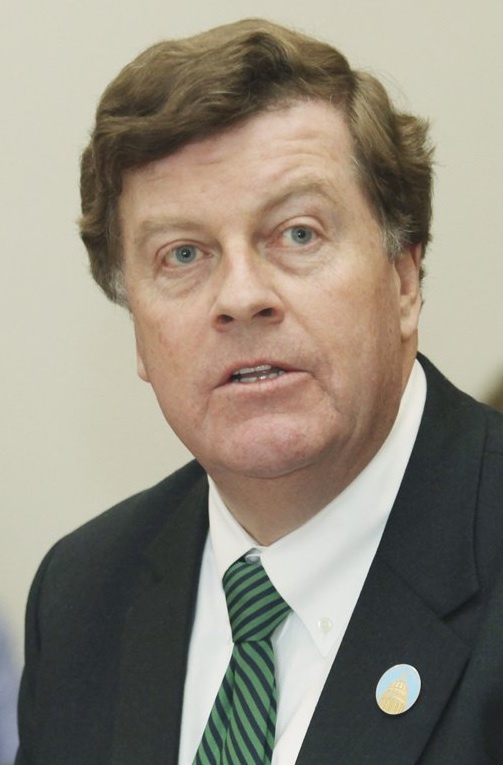Gov. Paul LePage said Wednesday that he plans to form more advisory groups that will be exempt from Maine’s freedom of information law, in addition to the business council he created by executive order last week.
Beyond the business community, LePage said, he wants to meet with teachers, people in higher education and environmentalists to get ideas for improving the state.
“It’s all about having a think tank of people that can be frank and honest and tell you what’s going on,” he said at the Blaine House. “And then from there, I bring it to my staff and see if we can help.”
LePage’s order exempts the business council from the state’s Freedom of Access Act, which means its meetings and records will not be open to the public. Several groups, including the Maine Civil Liberties Union and the Maine Heritage Policy Center, criticized that provision in a story published Wednesday in The Portland Press Herald, the Kennebec Journal and the Morning Sentinel.
The state Senate’s top Democrat appealed to the Republican governor to narrow the scope of the exemption Wednesday, saying he had “grave concerns” about the broadness of the language.
Senate Minority Leader Barry Hobbins, D-Saco, sent a letter to LePage citing his concerns and asking to work with LePage on the issue.
“I recognize that some of the material discussed on the advisory council may (be sensitive) and that there is a legitimate need for privacy,” he wrote. “However, the language in the executive order, as written, provides an absolute exemption, and providing an exemption into perpetuity casts a shadow of secrecy and is a barrier to the people’s right to know.”
Hobbins, a former chairman of the state’s Right to Know Advisory Committee, praised the governor’s decision to form the business advisory group.
MaineToday Media, parent company of the Press Herald, the Kennebec Journal and the Sentinel, was sending a letter to LePage saying, “We object to the illegal efforts to exempt the Business Advisory Council from the public access provisions of Maine’s Freedom of Access Act. … The order’s attempted exemption of the council’s records and activities … violates both the letter and the spirit of (the act).
“The order effectively eradicates the government’s accountability to the public on critical issues to the people of Maine — jobs and the economy.”
MaineToday Media asked the governor’s office for documents concerning the creation of the council and the opinions of the Attorney General’s Office regarding its exemption from the Freedom of Access Act.
Richard L. Connor, CEO of MaineToday Media, said the newspapers felt LePage’s action should be challenged.
“We believe in open access to government, to the point that we feel it’s our responsibility to fight these issues,” Connor said.
LePage said he didn’t realize that the exemption would create controversy when he signed the executive order last week.
“Basically, these are people we want to be able to sit around a table and say it the way it is,” he said. “They don’t want to be in the press, they don’t want to be public. They are not public workers.”
LePage said he wants to find solutions to make the state better.
“There’s no secrecy here,” he said. “If they want to do it on the steps of the Blaine House, I’m fine with it, too. But some of these people want to be frank and honest and open and they don’t want to be exposed to the same scrutiny and exposure that we see every day.”
Even without the executive order, state law allows the governor to meet privately with anyone, according to Mal Leary, president of the Maine Freedom of Information Coalition and owner of the Capitol News Service.
MaineToday Media State House Writer Susan Cover can be contacted at 620-7015 or at scover@mainetoday.com
MaineToday Media State House Writer Rebekah Metzler can be contacted at 620-7016 or at rmetzler@mainetoday.com
Send questions/comments to the editors.



